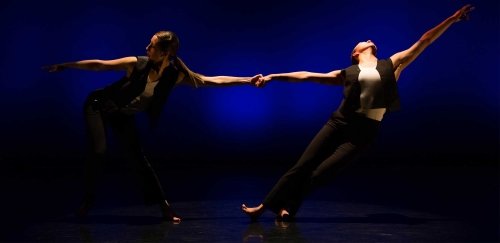Course Information
Here we provide information on course requirements, course descriptions and an Academic Rhode Map for each program, a semester-by-semester plan to help you toward graduation in four years.

Dance requires an articulate body informed by broad cultural knowledge and a cultivated aesthetic sensibility.
The BA in dance performance encourages individual expression while emphasizing the three aspects of dance study:
RIC’s strong academic curriculum is only equaled by its exceptional performance opportunities. Our dance majors regularly train and perform with professional guest choreographers. In many cases, they have either spent a week with our guests in the studio, taken a master class with a guest artist or had a dance number set for them by a professional artist for performance later in the year.
Today many of our graduates are working professionally as performers, choreographers and educators throughout the northeast.
To qualify for acceptance as a BA in dance major, you must be admitted to Rhode Island College (follow the general admission procedure described by the Office of Admissions) and successfully complete a dance audition. You do not need to be admitted to audition, but we recommend that you have your admissions application at least completed by your audition date.
If you are looking for a challenging and supportive environment in which to develop your artistic talents, take a closer look at Rhode Island College.
Here we provide information on course requirements, course descriptions and an Academic Rhode Map for each program, a semester-by-semester plan to help you toward graduation in four years.

Rhode Island College is unrivaled in music, theatre and dance in Southeastern New England.
